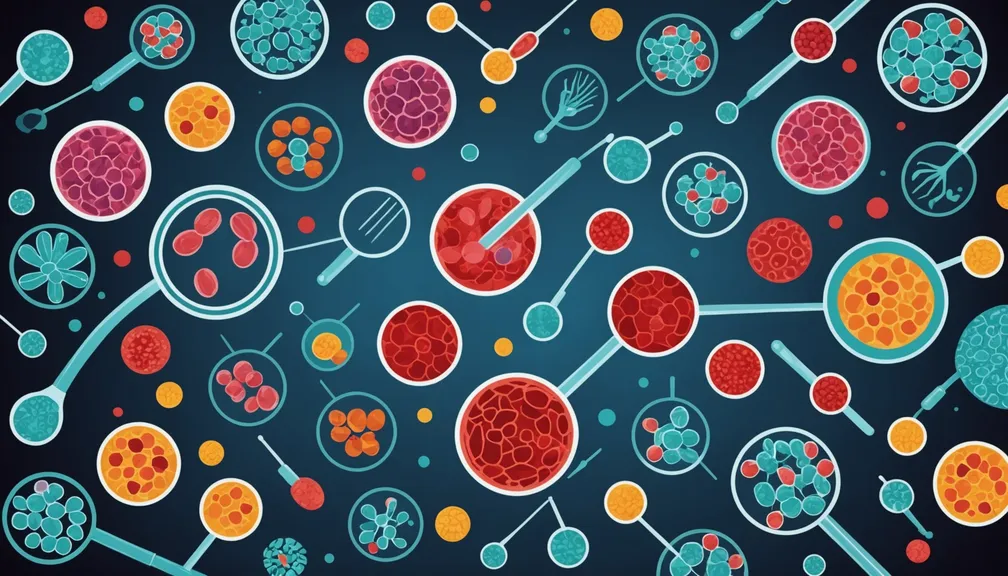Dietary Management: Customized Nutrition Plans
Managing a metabolic rare disorder often involves carefully tailored dietary plans. These customized nutrition strategies help your body process food efficiently, prevent the buildup of harmful substances, and ensure you receive the essential nutrients needed for growth and overall health. This lesson will guide you through understanding how to create and maintain a nutrition plan that suits your unique needs.
Understanding Metabolic Rare Disorders
Metabolic rare disorders are conditions that disrupt the body's ability to convert food into energy. This disruption typically occurs due to deficiencies in specific enzymes or malfunctions in metabolic pathways. As a result, certain substances may accumulate to toxic levels, or essential nutrients may become deficient, affecting various aspects of your health.
Importance of Diet in Managing Metabolic Disorders
A well-planned diet is crucial in managing metabolic rare disorders for several reasons:
- Prevents Toxic Accumulation: Certain foods can lead to the buildup of harmful substances in your body.
- Ensures Nutrient Balance: Proper nutrition ensures you receive all the essential vitamins and minerals needed for healthy growth and function.
- Supports Energy Production: Tailored diets help your body efficiently convert food into energy, reducing fatigue and improving overall well-being.
Creating a Personalized Nutrition Plan
Developing a customized nutrition plan involves several key steps:
Identifying Safe Foods
Determine which foods are safe for your condition. Safe foods are those that your body can process without causing harmful buildups or deficiencies. Commonly, this involves:
- Proteins: Identifying low-protein foods if you have a disorder affecting protein metabolism.
- Fats and Carbohydrates: Selecting appropriate types and amounts to balance energy needs without overloading certain metabolic pathways.
Limiting or Avoiding Certain Nutrients
Some nutrients need to be restricted to prevent complications:
- Avoiding Specific Amino Acids: In disorders like phenylketonuria (PKU), foods high in phenylalanine must be limited.
- Reducing Sugar Intake: For conditions like glycogen storage diseases, controlling sugar intake helps manage blood sugar levels.
Supplementation Needs
In some cases, supplements may be necessary to compensate for deficient nutrients:
- Vitamins and Minerals: Supplements can replace what your body cannot produce or absorb sufficiently.
- Specialized Supplements: Such as medium-chain triglycerides (MCTs) for certain fat metabolism disorders.
Monitoring and Adjusting the Diet
Regular monitoring is essential to ensure the diet remains effective:
- Frequent Health Checks: Regular blood tests and health evaluations to track the disorder's status.
- Diet Adjustments: Making necessary changes based on health assessments and growth patterns.
Common Dietary Approaches
Different metabolic disorders may require specific dietary strategies:
Low-Protein Diets
Used in conditions where the body cannot effectively process certain amino acids. This involves:
- Choosing Low-Protein Foods: Such as certain cereals, breads, and vegetables.
- Protein Supplements: To ensure adequate protein intake without excess harmful amino acids.
Ketogenic Diet
A high-fat, low-carbohydrate diet used primarily for certain neurological conditions but sometimes adapted for metabolic disorders:
- High-Fat Foods: Including oils, butter, and fatty fish.
- Low-Carb Options: Restricting sugars and starchy foods to maintain ketosis.
Glycemic Control
Managing carbohydrate intake to stabilize blood sugar levels, crucial for disorders affecting glucose metabolism:
- Complex Carbohydrates: Choosing whole grains and fiber-rich foods.
- Regular Meals: Spacing out carbohydrate intake to prevent spikes and drops in blood sugar.
Practical Tips for Maintaining the Diet
Implementing and sticking to a dietary plan can be challenging. Here are some strategies to help:
Meal Planning
- Plan Ahead: Prepare meals in advance to ensure you have appropriate options available.
- Balanced Meals: Incorporate a variety of safe foods to maintain nutritional balance.
Reading Food Labels
- Check Ingredients: Look for hidden sources of restricted nutrients.
- Understand Serving Sizes: Ensure portion control aligns with your dietary needs.
Eating Out and Social Situations
- Communicate Your Needs: Inform restaurant staff about your dietary restrictions.
- Choose Safe Options: Select menu items that fit within your nutrition plan or modify dishes as needed.
Support and Resources
Managing a metabolic rare disorder is easier with the right support:
Consulting with Health Professionals
Several specialists can assist you in creating and maintaining your nutrition plan:
- Metabolic Dietitian: Specialized in designing diets for metabolic disorders.
- Geneticist: Provides insights into how your genetic makeup affects your metabolism.
- Pediatrician or Primary Care Physician: Oversees your overall health and coordinates care.
- Neurologist: If your disorder affects the nervous system, they can help manage related symptoms.
- Endocrinologist: Manages hormonal and metabolic functions related to your condition.
Support Groups and Counseling
Connecting with others facing similar challenges can provide emotional support and practical advice:
- Patient Support Groups: Share experiences and strategies with others.
- Counselors or Therapists: Help manage the emotional aspects of living with a rare disorder.
Summary
Customized nutrition plans play a vital role in managing metabolic rare disorders. By understanding your specific needs, working with healthcare professionals, and implementing practical strategies, you can effectively manage your condition and maintain a healthy, balanced life.






